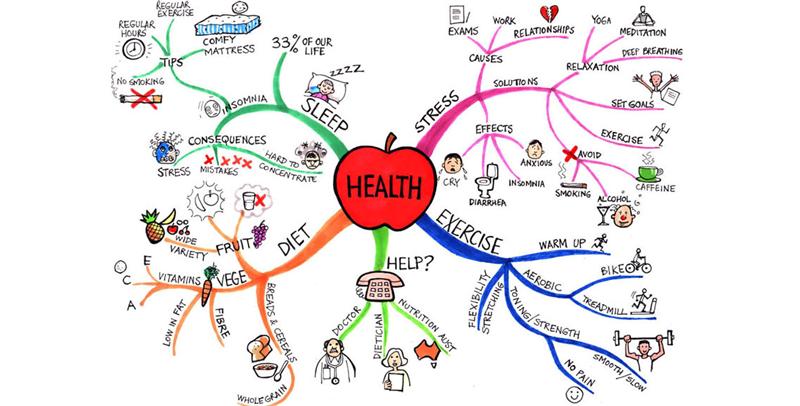April 7 ”“ World Health Day
By Neena Badhwar
World health Day is on April 7. It is recommended that one should check the lifestyle one is leading and try making improvements. Improvement in one’s health and help oneself for a healthy, happy life and aging. One way to do this is to go for regular Total Blood Checkups (either six monthly or yearly if healthy or as recommended by GP when sick) and be able to see that all the numbers are within the normal ranges. If not then we all know that there will be an astrix next to it ”“ showing that either the readings are below range or above. Discuss with your GP your blood test and compare it with the last one you had. By the way reports of all the blood tests and pathology tests are your property as you paid for it and you should ask for a copy of it. If you went to get the blood checked for a reason ”“ sickness, disease or condition then the ranges will be out of the normal. After discussion with the GP write down notes on the sheet as one may forget what they went for when they got the last blood test done. And do keep the results in one pile stapled or clipped together date and year wise. This way it is a good record of keeping your health in check, medical history and staying healthy and out of the way of any health issues that may creep up on you without you knowing.
“Prevention is always better than cure and knowing your numbers is a critical piece of your health puzzle,” says Professor Helena Teede from Monash University’s School of Public Health and a consultant with Jean Hailes for Women’s Health.
“Your numbers allow you and your GP to work out what you need to do to prevent disease and stay healthy.”
The key numbers include blood pressure, cholesterol, blood glucose and weight.
“If you don’t know these numbers you won’t know of complications until they occur. So if you don’t get your blood pressure checked you won’t know you may be at risk of stroke or heart attack until they happen,” says Professor Teede.
“High cholesterol also increases the risk of heart attack and stroke and up to 75 per cent of people who are an unhealthy or very unhealthy weight will get diabetes. Weight also has a potent impact on your risk of diabetes and on your blood sugar level.”
Half the people in Australia with type 2 diabetes are unaware they have the disease but if high blood sugar is detected early, diabetes is preventable. Making healthy lifestyle changes and losing three to five per cent of your weight ”“ even if you remain overweight ”“ can reduce the risk of diabetes by up to 60 per cent.
“We won’t drive a car without wearing a seatbelt and we don’t get in a boat without a lifejacket. We should take a similar approach to our health, know our risks and actively minimise them as stroke, heart disease and diabetes can be prevented,” says Professor Teede.
“Knowing your numbers is an opportunity to make small lifestyle changes that make a big difference to your health.”
Jean Hailes accredited dietitian Terrill Bruere says it’s important to make space in your life to think about your lifestyle and to plan to make small changes that you can easily achieve.
“Tweaking everyday habits, like making sure you have afternoon tea so you don’t nibble when you get home; not having dessert unless you’re actually hungry; eating breakfast so you don’t overeat at lunchtime; and putting a piece of fruit on your desk to get you through the morning are all small and achievable goals that if you plan ahead, you can change,” advises Terrill.
“Don’t forget to check in with yourself every now and again to see how you’re going, and reset your plans if you need to,” she adds.
What should your ”˜numbers’ be?
- Normal blood pressure is usually less than 120/80 mmHg
- A healthy total cholesterol level for adults is usually below 4.0 mmol/L. But cholesterol is divided into LDL cholesterol or ”˜bad’ cholesterol, and HDL or ”˜good’ cholesterol. LDL cholesterol should be below 2.5 mmol/L and HDL cholesterol should be above 1.0 mmol/L
- The normal range for blood glucose is about 4 to 6 mmol/L (fasting)
- Knowing your BMI will give you a baseline assessment of whether you are within a healthy weight range. A healthy BMI for an adult is 20-25
Small ways to help you improve your ”˜numbers’
- Walk an extra 5-10 minutes a day
- Limit salt when cooking ”“ use herbs, spices or lemon and lime juice for flavour
- Reduce portion sizes
- Swap juice at breakfast for an orange and a glass of water
- Cut back on processed foods ”“ eat more coloured fruits and vegetables
- For takeaway, buy a roast chicken and eat with salad instead of chips
- Try wearing a pedometer to increase your daily step count
- Make sure you get up and move, even at work, for a few minutes every hour
- Weigh yourself weekly ”“ if your weight creeps up make changes before it gets too hard
Short URL: https://indiandownunder.com.au/?p=2236

